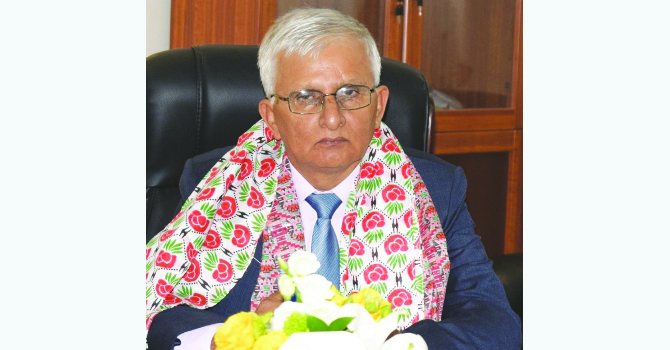Qatar abolishes restrictions on migrant workers, envoy Bharadwaj hails decision

By A Staff Reporter
Kathmandu, Sept 1: The government of Qatar has taken a significant step towards protecting migrant workers by passing two laws which could strike at the heart of the abusive kafala system.
The Emir of Qatar on Monday abolished restrictions on migrant workers changing jobs without their employer’s permission and introduced a monthly minimum wage of 1,000 Qatari riyal plus basic living allowances for some workers, said AI.
The two reforms were first announced by the Emir of Qatar in October 2019 and were signed into law today.
The first will abolish the ‘No-objection certificate’ which prevents migrant workers from changing jobs without the permission of their employer.
Under the new law, workers will be able to leave their job by providing a one-month written notice if they have worked for the employer for less than two years or a two-month notice if they have worked for them for longer.
The worker will not have to pay these costs, and the transfer request would be processed by the Ministry of Labour.
However, the reforms have not removed the ability of employers to file criminal ‘absconding’ charges against the workers who leave their job without permission.
Employers will also remain responsible for renewing and cancelling their workers’ residence permits, thus retaining considerable power over their employees.
The second reform introduces a 1,000 Qatari riyal monthly minimum wage ($275/£211), plus allowances of 300 QAR for food and 500 QAR for accommodation.
This wage applies to everyone, including domestic workers who have previously been excluded from reform measures.
Taking his Facebook account, Narad Nath Bharadwaj Wagley, Nepal’s Ambassador to Qatar, welcomed the historic step of the Government of Qatar to enhance the dignity of labourers.
He writes, “The decision to raise the minimum wages for workers is a forward looking initiative which has addressed a long-standing grievance persisting in the worker’s community.”
“Similarly, the abolition of the requirement for workers to obtain NOC from their employers to change employment has reiterated the workers’ freedom to choose job,” said Bharadwaj.
Likewise, Amnesty International (AI) said the Qatari authorities have taken a significant step towards protecting migrant workers by passing two laws which could strike at the heart of the abusive kafala system, but full implementation remains key, if the country aims to truly end labour exploitation,
In 2019, the ILO conducted a study to advise on setting a minimum wage level. The study has not been made public, but media reports last year suggested it recommended a minimum wage of at least 1,250 QAR.
The minimum wage replaces a temporary minimum wage of 750 QAR introduced in 2017, although some nationalities already had higher minimum wages negotiated via bilateral agreements.
Nepali workers were already paid a minimum of 900 QAR, for example, and the Filipino workers 1,400 QAR per month.
“For too long, laws that ban workers from changing jobs without their employers’ permission, along with widespread low pay, have left the migrant workers in Qatar at the mercy of abusive employers,” said Steve Cockburn, Amnesty International’s Head of Economic and Social Justice.
If implemented as promised, the removal of restrictions on workers changing jobs should make it easier for workers to escape abuse, said Cockburn.
Cockburn asked Qatar government to go further with these reforms, including removing the charge of absconding, to make sure that the rights of all workers are fully protected, he added.
While the new minimum wage will boost the incomes of some of Qatar’s lowest-paid workers, the level set remains low.
AI further called on Qatar to implement strong inspection and complaints mechanisms to allow workers who have been victims of human rights abuses to swiftly access justice and remedy.”
Recent News

Do not make expressions casting dout on election: EC
14 Apr, 2022
CM Bhatta says may New Year 2079 BS inspire positive thinking
14 Apr, 2022
Three new cases, 44 recoveries in 24 hours
14 Apr, 2022
689 climbers of 84 teams so far acquire permits for climbing various peaks this spring season
14 Apr, 2022
How the rising cost of living crisis is impacting Nepal
14 Apr, 2022
US military confirms an interstellar meteor collided with Earth
14 Apr, 2022
Valneva Covid vaccine approved for use in UK
14 Apr, 2022
Chair Prachanda highlights need of unity among Maoist, Communist forces
14 Apr, 2022
Ranbir Kapoor and Alia Bhatt: Bollywood toasts star couple on wedding
14 Apr, 2022
President Bhandari confers decorations (Photo Feature)
14 Apr, 2022











